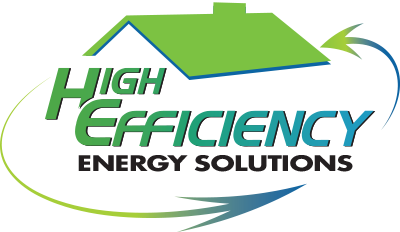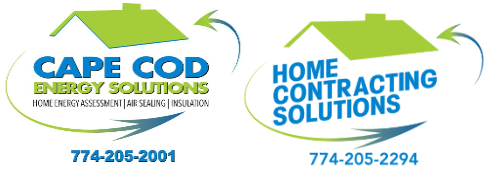Water softening systems offer many benefits such as financial savings, reduced cleaning time, and more. These systems can be an invaluable addition to any home that is suffering from the various discomforts of hard water.
Are you a homeowner in Plymouth County who has hard water and is tired of dealing with the numerous issues it brings? Are you unsure where to start when it comes to finding a soft water solution?
High Efficiency has been serving Plymouth County and Cape Cod for all things plumbing, and have compiled this list of benefits to help guide you in your choice of water solutions. Keep reading to learn all about water softening systems and the benefits they offer.
What Is Hard And Soft Water?
All water has numerous minerals, such as calcium and magnesium, but the amount of these minerals is what classifies the water as “hard” or “soft”. Soft water contains lower levels of calcium and magnesium than hard water.
Hard water’s high traces of these minerals can create internal issues for your plumbing system. Through mineral deposits and limescale, hard water can quickly degrade the efficiency of your pipes and water heater. Soft water does not create these same issues for your plumbing.
How Does A Water Softening System Work?
A water softening system works by removing the calcium and magnesium in hard water by ion exchange technology. As water enters the system, resin beads located inside will trap the hard water minerals and exchange them for sodium and potassium ions.
Water Softening System Benefits
Removing hard water through water softening systems offers you the advantage of reduced maintenance and repair costs for plumbing appliances, water heater efficiency, and more. Understanding these benefits can help you decide if you’d like to invest in a water softener.
Saves Money
Water softening systems can save you money long-term by reducing your plumbing system repair costs, your energy costs, and your cleaning product waste.
Hard water can cause damage to your pipes, which over time can cause blockages and expensive breaks. When mineral buildup grows in pipes, it makes the space for water to pass through more narrow and will require greater energy expenditure for water to get through.
Hard water is also incompatible with soap to a degree and will prevent a good lather and leave soap scum. With hard water, you will use much more soap long term trying to get a good clean than if you had used soft water.
Extends The Life Span Of Plumbing Appliances
When you use a water softening system, you will prevent limescale and harmful mineral deposits that can break down plumbing appliances over time. Soft water will not leave buildup like hard water does, which can be detrimental to some plumbing appliances.
Also, if you install a water softening system, you can expect to see the limescale slowly dissolve over time as soft water clears it away.
Cuts Cleaning Time
When hard water minerals are removed through water softeners, soap can lather more efficiently, and won’t leave soap scum or residue. This directly affects how long you will spend cleaning, and can give you a much greater clean in a shorter amount of time.
Upgrades Water Heater Efficiency
Softening hard water can improve the efficiency of your water heater by reducing or preventing scum or scale deposits. These mineral deposits cause an inefficient transfer of heat, and can dramatically decrease the efficiency of your water heater, even as much as 12-50%.
Helps Skin And Hair
Water softening can help reduce skin and hair woes by removing hard water minerals. Hard water affects your hair by leaving mineral deposits and causing frizziness and tangles, and can even worsen eczema and other skin issues.
Because of ineffective soap lather caused by hard water, bathing and showering with hard water can leave soap scum residue on your skin, which can exacerbate skin issues. You will quickly be able to tell the difference soft water makes in your hygiene routine.
Clean And Bright Clothing And Dishes
When you use soft water to clean laundry and dishes, you won’t be left with dull and graying clothing or spots on your glassware. Instead, your clothing will remain bright and soft, and your dinnerware won’t be left marked with any residue of hard water spots.
Frequently Asked Questions
Is it alright to drink soft water daily?
The increased sodium content in soft water is low enough to be unlikely to pose harm to anyone drinking it, however, those with health problems such as high blood pressure should be aware of how much they are consuming. They can always ask their doctor for specific advice as well.
What are the disadvantages of water softening systems?
There are a few disadvantages to water softening systems, however, some of them may be their cost and their maintenance. Water softening systems are not cheap and may be out of budget for some. They also will require regular maintenance to make sure they are performing well.
Around how long can a water softener last?
Water softening systems generally last around 10-15 years. In order to keep it working for as long as possible, perform regular maintenance tasks and clean the water softener’s tank once a year.
Conclusion
There are many benefits to investing in a water softening system, ranging from saving you money to keeping your clothes and dishes bright and hard-water-spot-free. If hard water has been causing you issues, choosing a water softener can bring the relief your plumbing system needs.
For more information on water softening systems and other plumbing topics, contact High Efficiency today! We have all the answers to your plumbing and HVAC-related questions. Give us a call at (508)825-3695 or visit our website to schedule your service in Plymouth County today.



